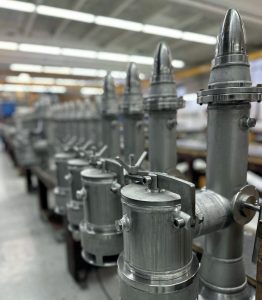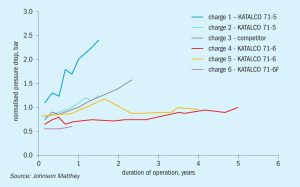
MOPCO lines up thyssenkrupp to lower carbon intensity of production
thyssenkrupp Uhde says that it has been selected by MOPCO – the Misr Fertilizers Production Company – to supply advanced technology for three existing ammonia and urea plants in Damietta, Egypt, to improve the sustainability of production. Using an innovative carbon capture and usage (CCU) solution, the aim is to remove up to 145,000 t/a of CO2 from the flue gas of the existing ammonia production and use them to boost urea production. At the same time, three 150 t/d axial-radial flow uhde® ammonia converter cartridges using JM’s high performance KATALCOTM 74-1catalyst will be installed in the existing converters to increase ammonia production capacity while lowering natural gas consumption in the synthesis loop by around 10%. To bring down CO2 emissions further, additional green hydrogen feedstock will be sourced from new water electrolysis units powered by renewable energy. MOPCO plans to produce up to 150,000 t/a of green ammonia.






